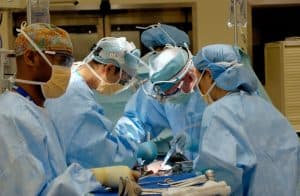Your dental health plays a key role in forming and retaining relationships. Since a healthy smile goes a long way, it is only natural to be concerned when your dentist mentions oral surgery for a dental complication. However, not all cases require the same type of oral surgery, as you’ll learn in this post. We spoke to the best Monterey, CA oral surgery experts to understand the types of oral surgery and when it is necessary. Let’s dive into it.
Dental Implant Installation
Dental implants are natural-looking teeth prosthetics that replace missing teeth. Implanting prosthetics requires oral surgery because the implants are attached to the jaw. An oral surgeon cuts through the jaw and gums to anchor the implant in place.
Dental implants are a popular choice among teeth replacement options owing to the many benefits they confer such as durability, continuous gum stimulation, and restoration of bite force. Oral surgery for dental implants is ideal when you are seeking to replace one or a few missing teeth.
Tooth Extraction
The most common type of oral surgery is tooth extraction. Sometimes a typical tooth extraction cannot get the job done. An oral surgeon or dentist will make an incision through the gums to reach the root of the tooth and extract it. Such a procedure is performed while under general anesthesia.
Tooth extraction through oral surgery is common for wisdom tooth extraction. More often than not, wisdom teeth growth affects the adjacent teeth. Since gums do not have the space to accommodate the extra teeth, removal is necessary. If you notice your wisdom teeth impact the rest of your teeth, it is important to contact a specialist for an accurate diagnosis.
Corrective Jaw Surgery
As the name suggests, corrective jaw surgery fixes skeletal damage to the jaw. Jaw problems are usually the root cause of multiple dental problems and may affect breathing or the ability to chew properly. Corrective jaw surgery corrects a misaligned jaw and other structural deformities in the jaw. Only a qualified dentist can determine whether you need corrective jaw surgery. Situations like a motor vehicle accident where your jaw is damaged naturally lend themselves to corrective jaw surgery.
Bone Grafting
Another specialized type of oral surgery is bone grafting. If you desire a dental implant to replace a missing tooth but do not have adequate bone mass, a dentist may recommend bone grafting. The surgical procedure uses parts of a bone from your body to add to the target spot. The reinforced area can hold a tooth prosthetic without causing further dental problems.
Maxillofacial Surgery
Trauma to the mouth and face or genetic factors may cause your maxillofacial features to be deformed. Usually, maxillofacial or oral surgeons perform maxillofacial surgery to correct the defects. Cleft lip and cleft palate are some conditions where oral surgery will suffice. Maxillofacial surgery helps correct poor speech patterns as a result of deformed structures. It is imperative to visit a qualified oral surgeon when treating you or your baby for cleft lip using surgery.
When faced with the prospect of oral surgery, it is essential to know what types there are and when they are necessary. With such information, you can have a candid discussion with your dentists and choose the most effective treatment option for your dental condition.

